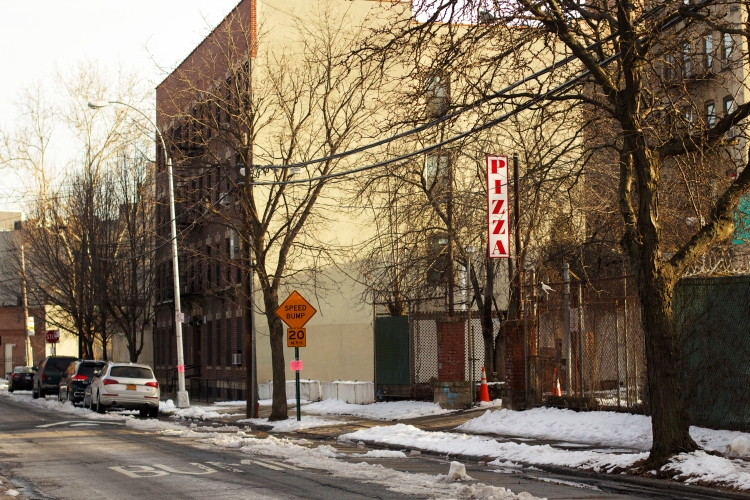
Fordham’s surrounding neighborhood is home to kids who would benefit from our support. Kellyn Simkins/The Fordham Ram
By Joanne Drawbaugh
The Rose Hill Gym is most fun when packed with Bronx elementary school students. Fordham and the local schools form a unique community in which we are all striving toward improving our surrounding neighborhood. As Fordham students we have the opportunity to receive an amazing education and take advantage of all the opportunities that New York City has to offer, but we also have a responsibility to use our talents and resources to help our borough.
What do we do when we witness something in need, be it a neighbor or an entire community locked in economic struggle? This is a question that universities like Fordham face every time they look beyond the borders of their campus. Inside the campus gates, there is a lush oasis complete with castle-like buildings and Versailles-quality landscaping. Outside these boundaries, the harsh realities of New York’s infamous wealth gap come to life. It is a dichotomy that can be found at schools across the nation, ranging from University of Southern California’s notorious University Park in the west to Yale’s New Haven, Connecticut, here on the east coast.
Here at Fordham, we have a close relationship with the surrounding Bronx community. Many of us live in apartments found throughout the Belmont area, and when our bodies beg for a break from Sodexo, we hit up the delicious eateries run by fellow Bronx residents.
Furthermore, Fordham profits off the array of amenities its setting offers. The university markets itself to prospective students as “The Jesuit University of New York,” situated in the heart of Little Italy in the Bronx. Pamphlets tout the convenience of our proximity to the Bronx Zoo, Botanical Gardens and Fordham Road shopping district. The school uses these features to draw students in, and therefore owes a lot to the area that provides them.
As a university, Fordham already takes measures to give back to the community in which it thrives. For example, the volunteer fair puts Bronx-based charities in touch with an army of students ready and willing to provide their assistance. Other schools take similar measures. The University of Chicago is located in one of Chicago’s most dangerous neighborhoods, but is making attempts to use employee-assisted housing to put professors in area homes in order to increase property values and mend the broken neighborhood.
These projects are all helpful and certainly a good first step, but it will take more sophisticated, prolonged, and thoughtful measures to enact real change. The University of Chicago’s plan sounds suspiciously similar to purposeful gentrification, a process that merely makes a place more “livable” by pushing the struggling population elsewhere. That does not fix the problem, it just puts it out of sight and therefore out of mind.
Fordham’s charitable efforts also seem like a publicity stunt at times, meant to serve as a tangible example to justify the university’s Jesuit values. The economic problems found in the Bronx and other communities like it throughout the nation stem from more than just a lack of manpower and money. At their root is a lack of empathy and, at worst, economic manipulation.
If universities hope to make a positive, lasting impact on their surrounding areas, they should put funding into programs that improve infrastructure and provide opportunities to disenfranchised people. Programs that offer alternatives to public transportation or a daycare program for single mothers would help families better provide for their children. Fundraising for community beautification or the formation of a community watch program would draw residents from other areas of the city to patronize local businesses and allow them to flourish. We have a vast array of resources that can aid the Bronx community with different attitudes and ideas.
It is important that schools take visible, active measures to help their surrounding neighborhoods, but perhaps the most important thing a university can do is educate its students. Fordham must show them the forces governing policy in New York and beyond. It must explain the history of how a place like the Bronx came to be. Most importantly, Fordham must instill a sense of urgent compassion in students. If we do not have the intense desire to ensure that systematic oppression comes to an end, there is no way the situation of communities like this will improve
Yes, volunteer work and charity help communities. Yet, these are just Band-Aids for a wound that needs stitches. If we are equipped with clear eyes and good hearts, we can work towards a more sustainable solution long after leaving Fordham. Here, we have an opportunity to do just that.
Joanne Drawbaugh, GSB ’17, is a marketing major from Mechanicsburg, PA.
